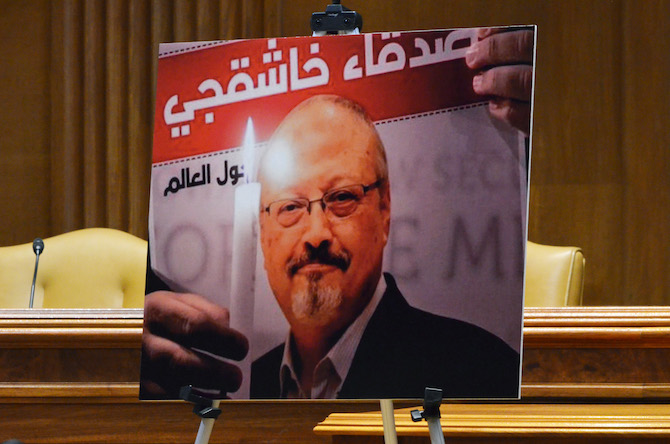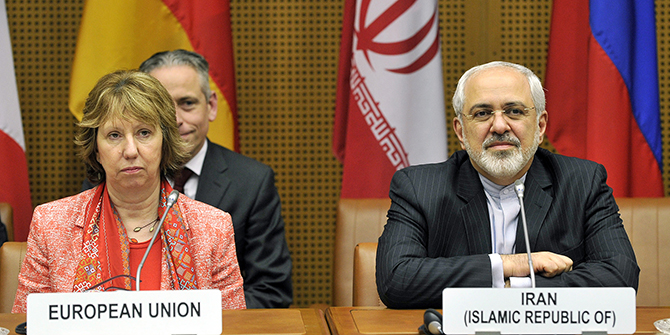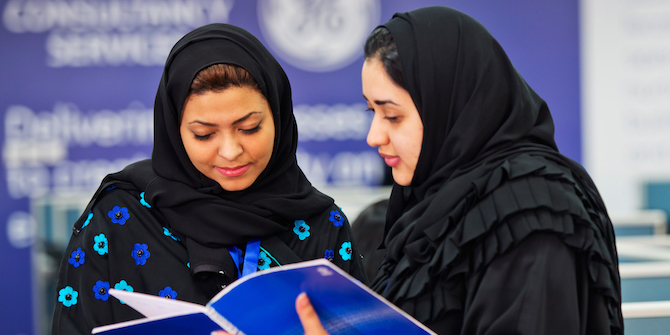by Umer Karim

Since October 2018, Saudi–Turkish bilateral ties have been hamstrung by the Khashoggi affair. However, some recent developments suggest that the Turkish side has tried to reach out to Saudi King Salman in a possible bid for a rapprochement with the Kingdom. Nevertheless, the Saudis do not appear to have forgotten the episode and are leveraging their economic muscle to pressure Turkey and its leadership as it faces a challenging economic situation and an increasingly contentious domestic political sphere.
The bilateral relationship saw historic highs during the 2000s when the political and economic partnership between the two sides acquired a strategic dimension. Personal ties between Saudi King Abdullah and Turkish President Recep Tayyep Erdoğan remained warm as the Saudi government bestowed upon him the esteemed King Faisal Prize for Service of Islam.
Then came the Arab Spring where Turkey’s backing of revolutionary forces – mainly the region’s political Islamists – set it against the Middle East’s status-quo powers, led by Saudi Arabia. However, a decisive rift never occurred, owing to similar threat perception within Ankara and Riyadh vis-a-vis Iran and its involvement in Syria. The impasse in bilateral ties created by Saudi support for the coup in Egypt was eventually resolved as King Salman ascended to the throne, with each renewing their partnership as Turkey fully supported the Saudi-led military campaign in Yemen.
As Russian military intervention in the Syrian Civil War decisively tipped the balance of power in favour of the government, the one structural variable keeping the Turks and Saudis together was no longer in play. The decision by Saudi Arabia, the UAE, Bahrain and Egypt to boycott Qatar in June 2017, and the subsequent dispatch of Turkish military personnel to the defence of the latter, drove a political wedge between Turkey and Saudi Arabia.
The murder of Saudi journalist Jamal Khashoggi in the Saudi consulate in Istanbul stretched tensions to breaking point. Yet the strategies deployed by the Turkish government during the Khashoggi saga spelled out a desire to avoid a total rupture with the Saudi Kingdom. The drip by drip leak of information to the media ensured that the Khashoggi story remained in the public eye, both keeping pressure on the Saudi side and sparing the Turkish government from having to directly confront them. The Turkish strategy was geared to create enough pressure on Saudi King Salman and major Saudi allies across the world – particularly the United States – to at least clip the wings of Saudi Crown Prince Mohammad Bin Salman, if not remove him from power altogether.
As the Crown Prince has maintained his grip on power, the subsequent Saudi pushback towards Turkey has taken numerous forms. With the rise of hyper-nationalism in Saudi Arabia, the country’s media landscape has functioned as a theatre of politically correct performativity. It appears that Turkey now factors highly in this constantly evolving nationalistic-patriotic index of Saudi Arabia. A plethora of opinion pieces and articles have appeared in the country’s Arabic as well as English-language media discouraging tourists from visiting Turkey, primarily on the grounds that the country is unsafe for Saudis. Calls to avoid Turkey were coupled with enjoinders for holidaymakers to discover the Kingdom itself, alongside other Muslim countries.
The highest profile endorsement of the ‘boycott Turkey’ campaign came when, in a famous video, Riyadh’s governor refused to accept a cup of Turkish coffee served to him. This also suggested that public displays of anti-Turkish animus were being encouraged and appreciated within Royal circles. A subtle campaign is also being waged on the economic front, with Riyadh’s Chamber of Commerce and Industry chief warning Saudis against doing business in the Republic owing to supposed investment risks and the volatile security situation.
The Turkish government appears cognisant of these Saudi tactics and has tried to defuse the situation through offering olive branches. These measures have again fallen into the trap of fundamentally miscalculating the dynamics of power in the Kingdom and Saudi strategic objectives. Yasin Aktay, an advisor to the Turkish President who had publicly blamed the Saudi Crown Prince for Khashoggi’s murder, recently wrote an open letter to King Salman in the pro-government outlet Yeni Şafak.
In what appeared to be a semi-official message from the Turkish side, Aktay explained that Turkey didn’t hold any ill will towards the Saudi King and only wanted justice to be served in the Khashoggi case ‘even if it involved punishing loved ones’, a veiled reference to the Crown Prince. The other notable point within Aktay’s message was a mild protest against the Saudi treatment of Islamist religious figures. Again, in a futile attempt the Turkish side was trying to provoke dissent in Saudi ranks and distance the king from his son. The Saudi response towards Aktay’s letter came through an op-ed written by the well-connected Saudi Gazette journalist Jameel Al-Theyabi, who lambasted Turkish government circles for dreaming of a ‘Caliphate of the Brotherhood’ and meddling in the internal affairs of Saudi Arabia and other Arab countries.
Against this backdrop, President Erdoğan’s decision not to participate in 2019’s OIC Summit in Mecca – where he was supposed to hand over the chair of the organisation to the Saudis – didn’t help things. He has tried to make amends by sending Eid felicitations to King Salman in a bid to open up a personal communication line with the Saudi monarch. This does not seem to have worked, as Saudi authorities continue to take steps against Turkey. The latest among these has been a temporary blockade of Turkish exports from entering Saudi ports, in addition to a memo being sent to various government departments to look into the nature and scale of Saudi investments in Turkey.
It is clear that Saudi–Turkish ties have not recovered from the effects of the Khashoggi affair, and the political cycle initiated by that episode seems far from over. As an emboldened opposition challenges President Erdoğan’s domestic position on the back of its recent victories in local elections and continued turbulence for the Turkish economy, Saudi Arabia will continue to use various assets within its economic arsenal in an attempt to politically weaken the embattled president. Turkey’s decision to upgrade its presence in Qatar to a full military base will heighten Riyadh’s threat perception even further. Barring any substantial shift in the Turkish stance towards the Muslim Brotherhood, a seismic change within Turkish politics or a dramatic change in the Saudi power structure, a comprehensive rapprochement between the two sides remains very unlikely.







1 Comments